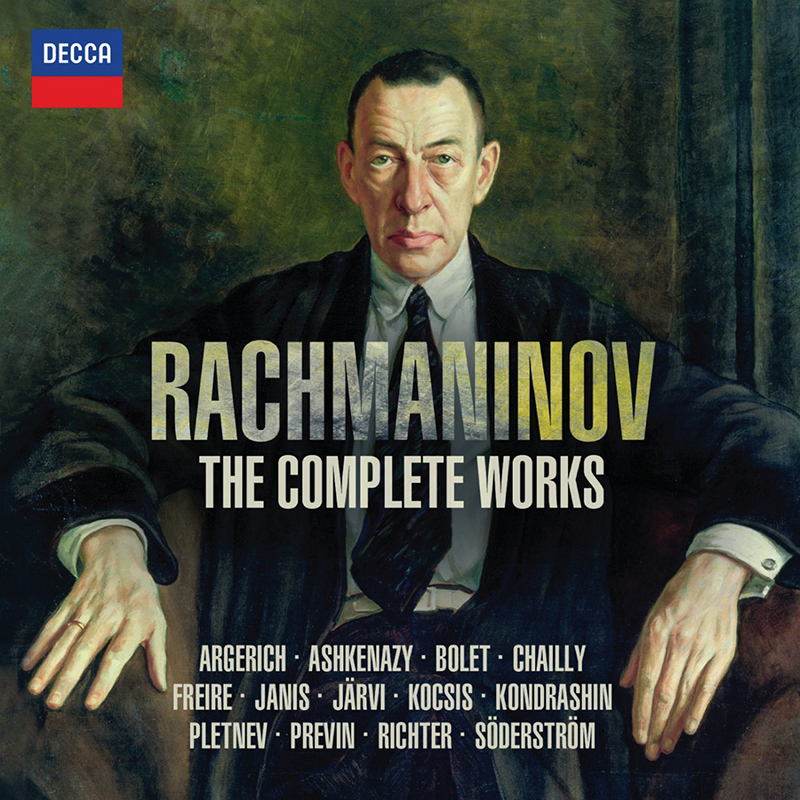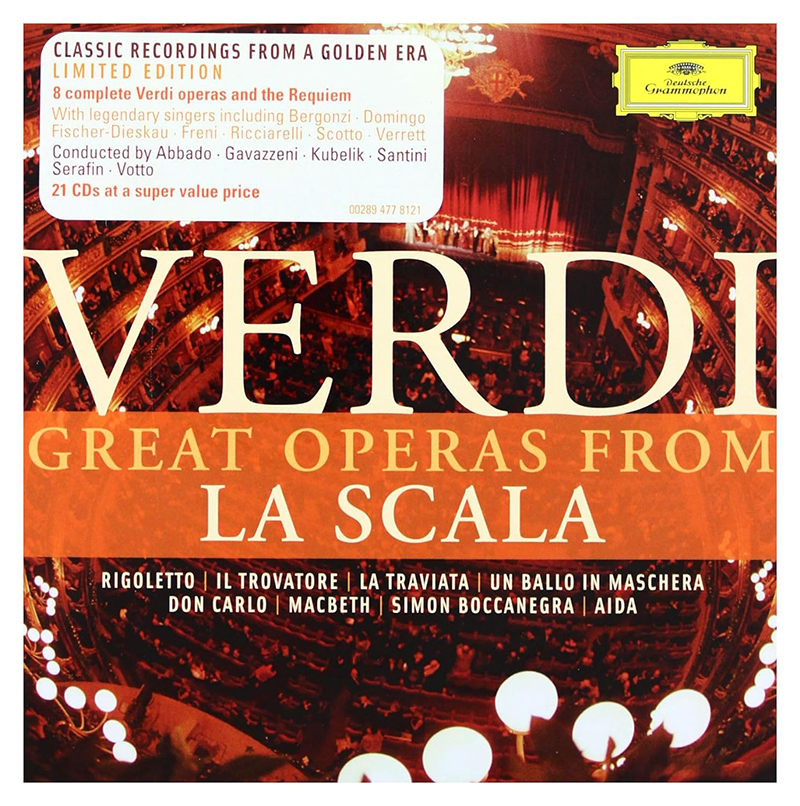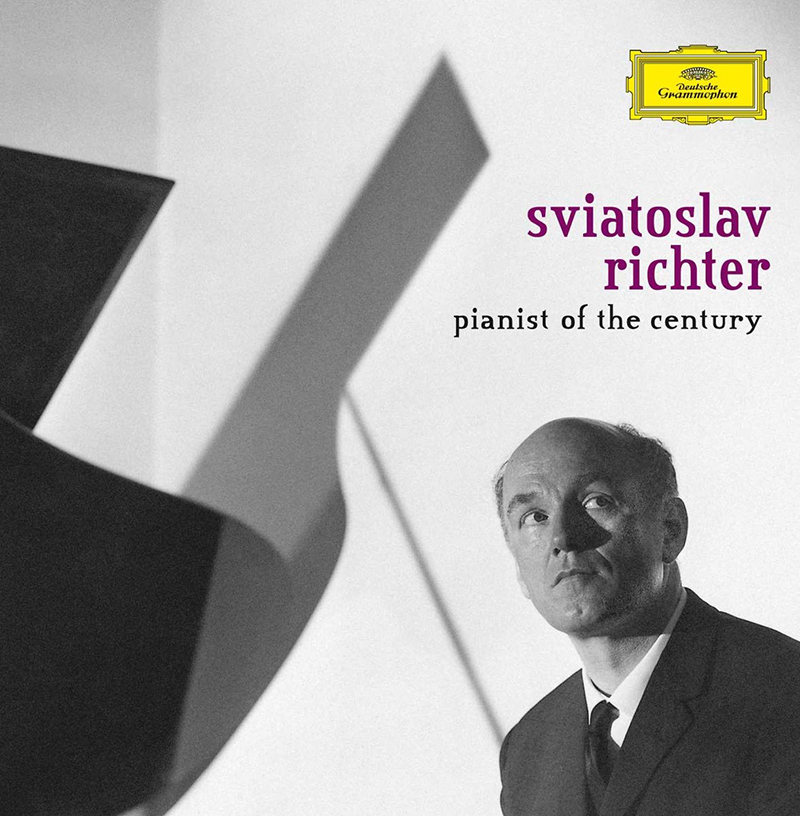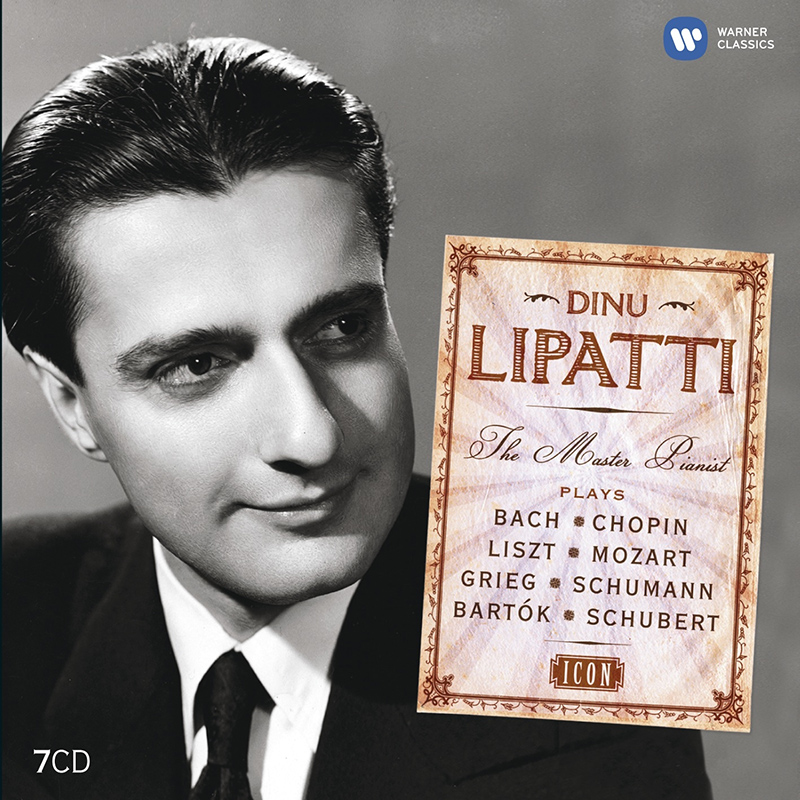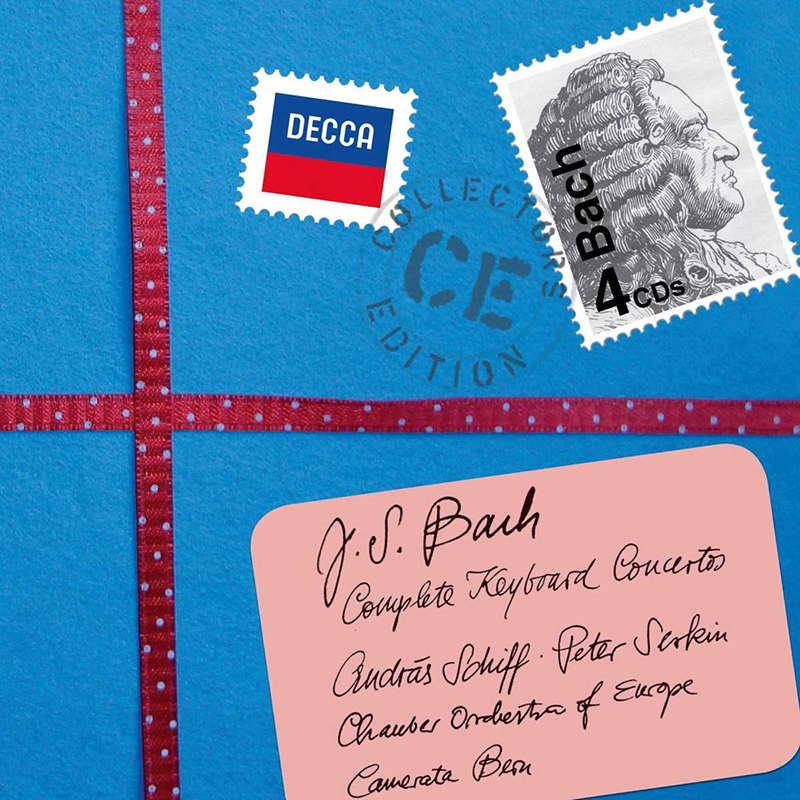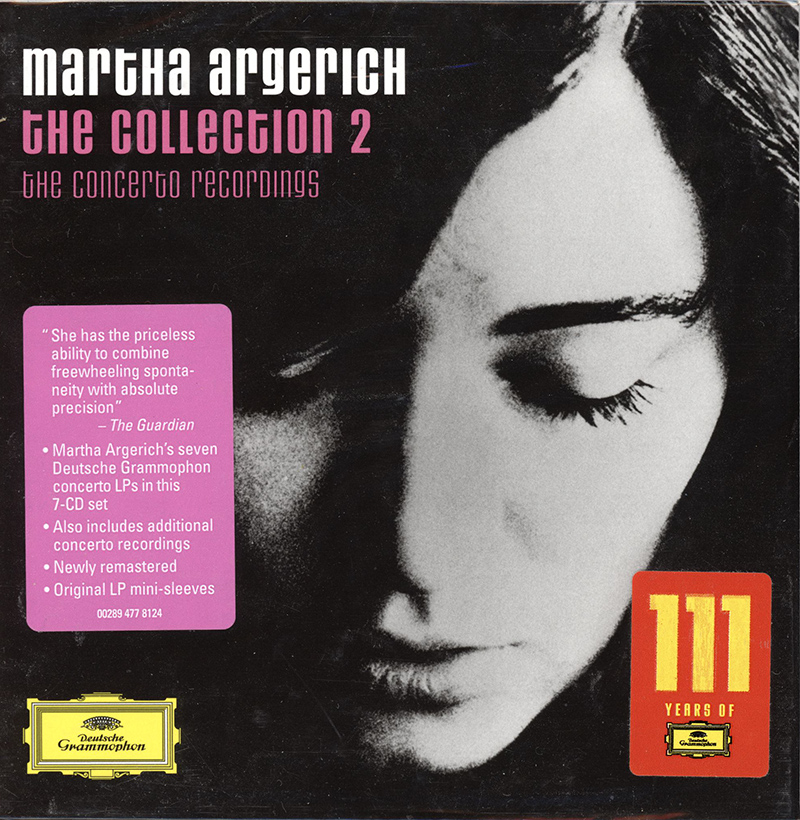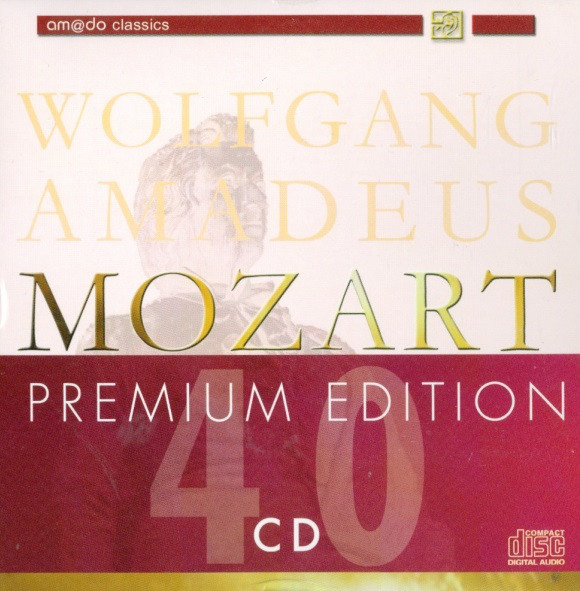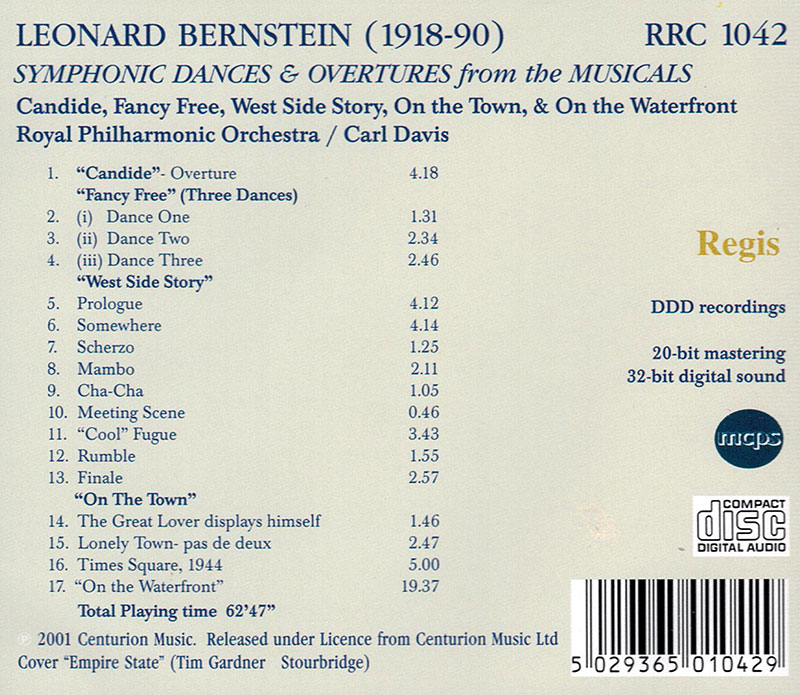Logowanie
KOLEKCJE!
BACH, CHOPIN, LISZT, MOZART, GRIEG, Dinu Lipatti, Otto Ackermann, Ernest Ansermet
The Master Pianist
PROKOFIEV, CHOPIN, TCHAIKOVSKY, SCHUMANN, BEETHOVEN, Martha Argerich, Claudio Abbado, Giuseppe Sinopoli
The Concerto Recordings
The Collection 2
Jakość LABORATORYJNA!
ORFF, Gundula Janowitz, Gerhard Stolze, Dietrich-Fischer Dieskau, Deutsche Oper Berlin, Eugen Jochum
Carmina Burana
ESOTERIC - NUMER JEDEN W ŚWIECIE AUDIOFILII I MELOMANÓW - SACD HYBR
Winylowy niezbędnik
ClearAudio
Essence MC
kumulacja zoptymalizowana: najlepsze z najważniejszych i najważniejsze z najlepszych cech przetworników Clearaudio
Direct-To-Disc
PIAZZOLLA, ChamberJam Europe
Tangos del Ángel y del Diablo
Direct-to-Disc ( D2D ) - Numbered Limited Edition
BERNSTEIN, Carl Davis, Royal Philharmonic Orchestra
New York! New York!
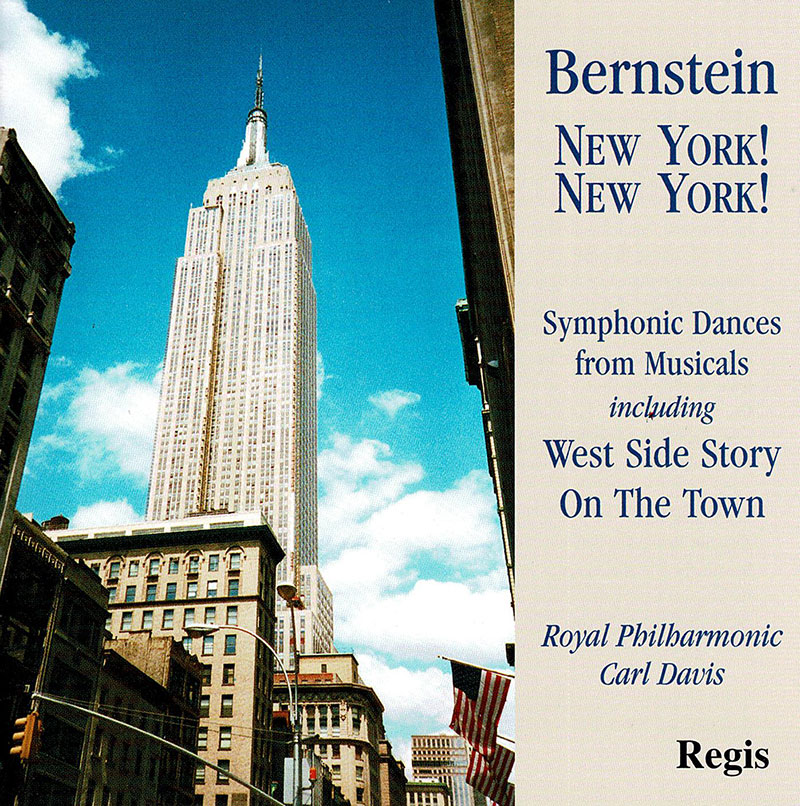
- 1. "Candide"- Overture 4.18
- "Fancy Free" (Three Dances)
- 2. (i) Dance One 1.31
- 3. (ii) Dance Two 2.34
- 4. (iii) Dance Three 2.46
- "West Side Story"
- 5. Prologue 4.12
- 6. Somewhere 4.14
- 7. Scherzo 1.25
- S. Mambo 2.11
- 9. Cha-Cha 1.05
- 10. Meeting Scene 0.46
- 11. "Cool" Fugue 3.43
- 12. Rumble 1.55
- 13. Finale 2.57
- "On The Town"
- 14. The Great Lover displays himself 1.46
- 15. Lonely Town- pas de deux 2.47
- 16. Times Square, 1944 5.00
- 17. "On the Waterfront" 19.37
- Total Playing time 6247"
- Carl Davis - conductor
- Royal Philharmonic Orchestra - orchestra
- BERNSTEIN
Symphonic Dances from Musicals
Leonard Bernstein Leonard Bernstein (1918 - 1990) was without question one of the most gifted musicians of the twentieth century. Whether as conductor, composer, pianist, broadcaster, teacher or writer, he immersed himself fully in his work. He seemed equally at home whether he was conducting the Vienna Philharmonic in Mahler or Brahms, accompanying Louis Armstrong or Benny Goodman in a jazz concert, or explaining the delights of the William Tell overture to a hall full of youngsters or the complexities of Rite ofSpring or a Beethoven symphony to adults. He felt the need to reach out to people and found music the perfect medium with which to do this. In the last year of his life he commented `I love two things, music and people... I make music because I love people, and I love to work with them and I love to play for them... and communicate with them on the deepest level which is the musical level.' He liked to say that he put his arms around the whole musical world and he used his unique position to address publicly such issues as Aids, the proliferation of nuclear weapons, and human rights abuse. As a conductor he could be infuriating: like many I eagerly awaited his live Enigma Variations but was unable to comprehend his treatment of 'Nimrod'. Similarly his Rhapsody in Blue recordings could be characterised as overindulgent and ponderous. However whatever the critical judgement of some of his readings, it was always undeniable that he carried conviction and never gave the music less than 100% of his attention. reflects the folk music of these areas and Leonard Bernstein's compositions were no exception in marrying these many musical influences. His own parents were from Russia and fond of music. Lenny would listen avidly to the radio and when he was ten an aunt gave him the use of a piano. However his father held fixed ideas as to the unsuitability of music as a profession and was not impressed when Lenny spent his last $4 on a clarinet. Lenny was not to be deflected: his first visit to a concert left a profound impression and he was determined to pursue a career in music. Bernstein met the esteemed conductor Dimitri Mitropoulos as well as Aaron Copland, Roy Harris and William Schuman, all of whom offered him encouragement. Fritz Reiner, who taught at the Curtis Institute in Philadelphia, coached him and then in 1940 he was hired by Serge Koussevitsky as an assistant at the Tanglewood summer school. Three years later Lenny was appointed as Artur Rodzinski's assistant with the New York Philharmonic Symphony and that autumn he deputized at very short notice for Bruno Walter. The acclaim following this concert led to other opportunity and it was not long before he had conquered Europe as a conductor. He held strong links with the Israel Philharmonic, based in Tel Aviv, and in 1953 became the first American to conduct at La Scala Milan (Medea with Callas). In 1966 he made his Vienna debut (Falstaff returning often to conduct the Vienna Philharmonic. But it was as Music Director of the New York Philharmonic that he was best known and when appointed to this post in 1958, was the first American born and American trained to do so. With so many immigrants from Russia, Eastern and Central Europe, Italy, Ireland and Britain it is hardly surprising that so much of American music Having always publicly demonstated his love of all kinds of music, it is hardly surprising to find his own compositions so eclectic. Here we may find echoes of Gershwin, Copland, Mahler, Stravinsky, Shostakovich, jazz, rock, musical comedy, Jewish folk and Western church music (although not all are necessarily evident on this disc). The earliest work represented is the ballet Fancy Free, dating from 1943/1944. The work was written in close collaboration with the choreographer Jerome Robbins and the scenario concerns three sailor friends on shore leave and their highly competitive attempts to pick up girls. Bernstein and Robbins expanded the idea when they drafted in the young writers Betty Comden and Adolph Green to turn the scenario into a musical comedy. The result, On the Town, opened at Broadway's Adelphi Theatre on 28 December 1944 with a young cast (including Comden and Green and Nancy Walker) and ran for a highly respectable 463 performances. In On the Town there is no sense of competition between the sailors, and indeed the two who succeed early on in fording girlfriends rally around their friend Gabey and assist him in his efforts to find a mate. The songs included `New York, New York', `Come up to my place', `Carried away', 'Lonely Town' `Lucky to be me' and `Some other time'. Some years later MGM filmed the show with Gene Kelly, Frank Sinatra, Jules Munshin, Vera-Ellen, Betty Garrett and Ann Miller but inexplicably dropped most of the songs. On The Town followed the lead set by On Your Toes (Rodgers and Hart 1935) in devoting much of the performing interest to ballet. This CD includes three of the dance episodes: the erotic `The great lover displays himself (and what a camp title!) in which Gabey dreams that his girlfriend succumbs to the charms of a rival on Coney Island; the bluesy and melancholic `Lonely Town' (danced by a loving couple, and observed by the lonesome and envious Gabey); and the riotous `Times Square 1944' (which closes the first act). In 1954 Bernstein wrote his only Hollywood score, although his influence had been very much felt in Alex North's sultry score for A Streetcar namedDesire (1951). On the Waterfront, a moody film directed by Elia Kazan starred Marlon Brando and Eva Marie Saint with such established stage actors as Karl Malden and Lee J Cobb, won eight Academy awards and was hugely successful. Bernstein's often violent score superbly captures the essence of the film. At times it even obliterates the speech, emphasizing the characters seeming impotence in their struggle against the system. This effect of intentionally drowning the dialogue (so different from the great scores of the 1930s and 1940s when Korngold, Steiner et al went to such pains to underscore the film) was an innovation and revelation to fellow film composers, critics and the public and revolutionised the art of filmscore composition. Two years later, Bernstein returned to Broadway for a European, Gilbert and Sullivan type operetta Candide (lyrics by Richard Wilbur, book by Lillian Hellman based on Voltaire's eponymous novel). Despite Tyrone Guthrie's direction and strong performances from Max Adrian, Robert Rounesville, Barbara Cook and Irra Petina the satire failed to inspire the New York audiences and it came off after only 73 performances. It fared no better in London; however a reworking by Hal Prince in 1974 gave the work a substantial run and subsequent stagings both sides of the Atlantic have proved popular with audiences. The bubbling overture has proved a constant favourite and is one of Bernstein's most popular pieces. It prepares its audience for the whirlwind adventures of Candide and his lover Cunegonde, a couple whose idealism leaves them ill-prepared for the dangers they face. The remainder of the score shows Bernstein tipping his hat to Offenbach and the Italian Romantics (most notably Bellini) as well as his beloved G & S. In 1957, Bernstein achieved his greatest success with West Side Story, a reworking of Romeo andjuliet set in contemporary New York. Here the antagonists are the native white population and immigrant Puerto Ricans (although the original book was to be of feuding Jewish and Irish Catholic families). Initially Bernstein was chosen by Jerome Robbins to write his own lyrics but he stepped down in favour of the young Stephen Sondheim. The contemporary setting and jazz dancing proved to be hugely relevant to the more hip theatre-goers as was the 1961 film, which in turn introduced Bernstein's vital music to an audience perhaps only aware of his work as a conductor. The symphonic dances are magnificent arrangements of some of the best known numbers in the score, ranging from the romantic `Maria' to the sinister `Cool fugue' by way of the thrilling big-band sound of `Mamba' before arriving at the tragic close `Somewhere'. Those who wish to explore Bernstein's compositions further should seek out Prelude, Fugue and Riffs (commissioned by Woody Herman); the musical Wonderful Town; Mass, a rock opera written for the opening of the Kennedy Center in 1971, which captures much of the anger Bernstein felt at America's involvement in Vietnam; and his three Symphonies (not `easy' listening, but rewarding nonetheless). Chichester Psalms is available on Regis (RRC 1003). The conductor Carl Davis, born in New York in 1936, is perhaps more familiar as the composer of a number of outstanding film and TV scores including the evocative French Lieutenant's Woman (1985), The World at War (1981), The Mayor of Casterbridge (1978) and the main themes of TheFarPavilions (1986) and Scandal (1988). He also composed the scores to accompany Napoleon and Ben Hur, two silent films shown with huge success on London's South Bank. More recently he co-wrote the Liverpool Oratorio with Sir Paul McCartney (1991), and he regularly conducts the RLPO's own popular "Summer Proms". He is also the conductor of a Gershwin set with Joanna MacGregor on Regis (RRC 2005) © 2001 Copyrightiames Murray
